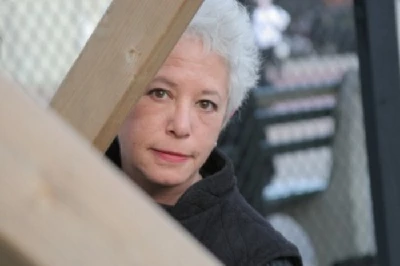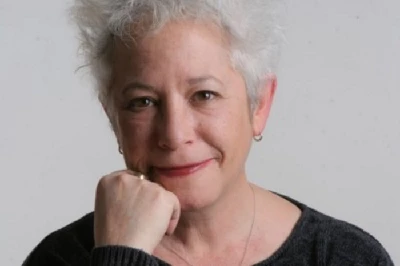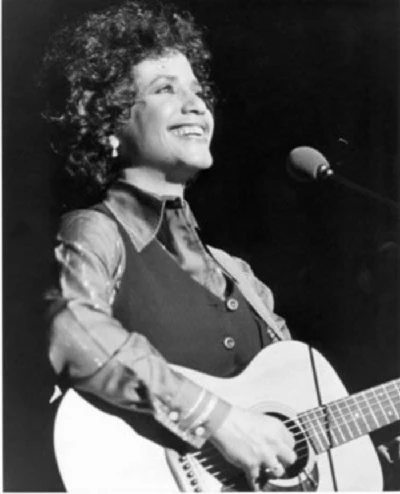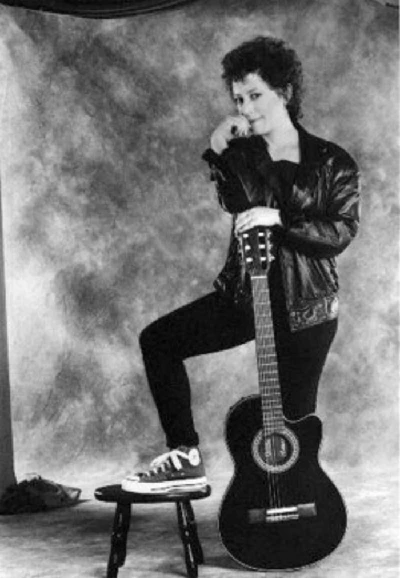published: 22 /
5 /
2009
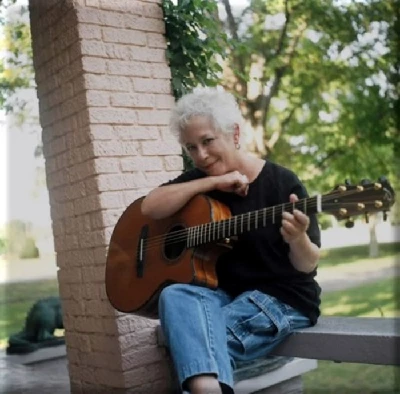
Award-winning American folk singer-songwriter Janis Ian had her first hit in 1967 as a 15 year old with 'Society's Child'in 1967. She talks to Lisa Torem about her forty years of making music, her new career as a writer and continued love of touring
Article
Janis Ian, the singer-songwriter who illuminated the world at 15 and wrote and performed 'Society’s Child' – a song which brought to light inter-racial dating and which was nominated for a Grammy for Best Folk Album ('67) - has always been ahead of her time. She even beat out President Obama and family –that’s right – she and partner Pat got their Portuguese Water Dogs, Foster and D’roo (Dog and Kangaroo) first.
I knew her accomplishments were stellar before we spoke. In 1975, Ian was awarded a Grammy for Best Female Pop Vocal Performance for her self-penned 'At Seventeen' ('Between The Lines') and the album subsequently went platinum garnering several more Grammys. Another album, 'Breaking Silence'(1993), one of more than twenty five records released by a major label, was also Grammy nominated for Best Folk Album.
She’s sung with country-star Dolly Parton and jazz interpreter Mel Torme and co-written with the iconic Woody Guthrie. Never one to forget her inspirations, on her twenty sixth studio album, 'Billie's Bones' (2004), she pays tribute to one of her favorite vocalists, Billie Holiday. Ian’s songs have been covered by artists such as Etta James, Bette Midler, Nina Simone, Dusty Springfield, Cher and Joan Baez – and that’s just the short list.
Along with Mike Resnick, Ian co-edited a book of stories by famous sci-fi writers entitled, 'Stars', which is based on her catalogue of original songs. Her memoir, 'Society’s Child', chronicled her ’60s celebrity rise and the path her life took thereafter. As a columnist, for 'Advocate' for more than five years and for 'Performing Songwriter' for more than eight, she’s perpetuated her writer’s chops.
Already immortalized, she has a guitar named in her honour and even a movie character (Tina Fey’s movie, 'Mean Girls' features a Janis Ian character.)
But, as I began to write this introduction, something tugged at me. Despite being impressed with Ian’s beautiful songs, stories and philanthropic endeavours, simply underscoring her accomplishments alone just didn’t seem right. Why ? Because after our conversation, I discovered so much more about the actual woman, “between the lines.”
Janis Ian is a warm and captivating person. In, not just this interview, but in so many others, she expresses gratitude and compassion for others. She’s concerned that everyone around her has a job, shelter and someone to love. The uber-optimist, she readily admits on her website, “I still clap for Tinkerbell.”
I spent the other night browsing YouTube looking for the fuselage that bound together the younger and the more mature Ian. Eureka ! Though mesmerizing, these performances embued contradiction.
For instance, when watching Ian sing the bittersweet lyrics of 'At Seventeen' –“ an ugly duckling girl like me” - I am riveted. Why ? First of all, she was absolutely beautiful with glowing eyes and translucent skin. And yet, though her audience may have seen her as quite beautiful, this performance helps us recall our own insignificant pasts and we believe that every utterance is genuine.
A later video shows Ian singing 'Jesse' simply accompanying herself with an acoustic guitar. In this day and age, it is rare to see such an unfettered, unproduced display of talent. Her delivery is poignant and sensitive, yet cement-block strong.
Still another epiphany is how such a rooted and centered artist finds herself so drawn to the unpredictable genre of science-fiction. When asked about her favourite film, I expected Ian to dish on French film-noir or epic historical fiction. But, well, read on and you may be equally surprised.
PB : You said in an article that you wrote for 'Performing Songwriting Magazine' in 1997 that “being an artist means living with a monkey on your back; an addiction to creation so deep that whenever you aren’t involved in the act of creation, you feel absolutely awful, and like any addict, the last fix only holds us so long.” So, tell me about your “last fix” and how long it held you ?
JI : Oh, wow. I don’t even remember. I’ve been doing business since January. I’ve been doing contract negotiations. Yeah, writing my book, I guess, which held me for about three months.
PB : Writing your book was a fix ?
JI : Yeah. Well, any kind of creation.
PB: You also said again in 'Performing Songwriter' that “by the time you reach my age, you’ll have come full circle, and you’ll accept that no one really understands anyone else in this world.” If that is true, what makes you still get out there and entertain when nobody understands you ?
JI : Entertaining people has nothing to do with understanding them, does it really ? You understand the audience as a group but the individual people are as much a mystery as they ever are. I think there’s a certain safety net that comes with knowing that because you no longer have to prove anything to anyone (Laughs),since they’re not going to get it anyway.
PB : I read that you have frequently acted as a songwriting judge at the Bluebird in Nashville for no pay and not even a beer. What’s the pay-off for you then ?
JI : The Bluebird? Oh, actually I am not doing that anymore, but the pay- off is just giving back to the community. There’s a point - also in your life - where you turn around and you go, "I’ve spent almost all my life earning a living doing something I love." Most people are not that lucky. I need to start paying back.
So payback can be anything from the Pearl Foundation, to judging at the Bluebird, to writing articles for 'Performing Songwriter', to doing benefits. It’s all just being part of being part of a community.
PB : Tell me about the Pearl Foundation. What has it meant to you ?
JI : It was started in my mother’s name – to honour her being brave and going back to school even though she had Multiple Sclerosis and even though she was so disabled. We’ve got, I think, 15 graduates so far and we’ve raised over $300,000.
It’s amazing how generous people are when they feel like it’s going to a good cause. We have a tip jar at the shows. In a typical year the tip jar will raise 4-$6,000 just from people emptying their loose change or throwing in their change from a product we sell.It’s a continual source of wonder to me that people trust me and that they are so willing to be generous. I mean, I think the human race, in general, is pretty generous.
PB : You became famous so young. How did that affect the rest of your career ?
JI : I have no idea. I have no basis of comparison for not being famous when I was young.
PB : Well, that makes sense.
JI : Yeah. I mean that’s like saying, “how does being white affect you ?” I’ve never not been white.
PB : You had some hard times with some of your high-school teachers. What would you say to them now ?
JI : I probably wouldn’t because they would’ve forgotten it. It’s amazing how when people treat you badly in your youth they forget it when you’re successful later. And I wouldn’t bother with any kind of vengeance. Who really cares ? Too many years now. Life’s too short to worry about that stuff.
PB: Okay. I have a quote from a Chicago teenager, “Janis Ian rocks. Didn’t she write 'It’s Seventeen'? You don’t have to be from that era to understand isolation. It’s universal.”
JI : That’s prophetic.
PB : Do you get a lot of younger people in your audience now ?
JI : It runs the gamut. It really depends more on geography and the type of show. At the Performing Arts Centres it’s an older audience, but it’s a higher ticket price. At the folk festivals, it’s a younger audience but it’s a lower ticket, too...
PB: What kind of songs are you doing now at the concerts ?
JI : It’s really 'Society’s Child' on through. I’m at that luxurious point in my career where I can pick and choose which songs I want to do. Fortunately, for me I’ve liked everything that’s been a hit.
PB: You’ve co-edited 'Stars'. How did that project begin ? How did you get from writing song lyrics to writing sci-fi ?
JI : That’s a really long answer. Basically, I was encouraged to write some prose by a bunch of science fiction authors I knew and then Mike Resnick, my co-editor on that book had the idea of putting together a book of original stories by writers who admired my work and could incorporate it.
To me sci-fi is a lot like folk music. They’re both outlaw forms. I would include jazz in that as well. I think I said at one point, “science fiction is the jazz of prose.” That pretty much sums up how I feel about it.
PB : You took three months to write 'At Seventeen'. It’s such a moving song –it’s spanned so many generations. Looking back did you come up with a strategy for writing a timeless classic ?
JI : No, you just write songs. You don’t think about timeless classics. You just try to write the best song you can. I’ve yet to meet a writer who thinks that way.
PB : Now, some artists say, “I recorded the entire album in one day.” I think you’ve spent so much time honing the craft and getting things right.
JI : No, it’s just because now I’m a much better writer. But it never happened that way. For me, it’s just always been song by song and 'At Seventeen' took three months and 'Stars' took two and a half hours. So, I don’t view it that way. Each project takes the time that it takes. We cut 'Folk is the New Black'(2006 Ian album-Ed), top to bottom, mixed and done in five days.
It just all depends on the project. I would hate to tie myself down to codify being creative that way...
PB : Do you prefer collaborating or writing independently at this point?
JI : It doesn’t matter. Apples and oranges. I don’t mean to make light of either. It really doesn’t matter to me. I enjoy them both.
PB : Which of your lyrics reflect your current state of mind ?
JI :(Laughs) All of them. Absolutely.
PB : So they’re just as personal as they ever were?
JI : They stay that way. If you write universally enough - which is what I try to do - they stay relevant. 'Society’s Child' is still relevant. 'At Seventeen' is still relevant. 'Stars' is still relevant. All those songs still are relevant and still have meaning for me.
PB : Any favourite books or movies ?
JI: I’m a big 'Terminator' fan. Books ? So many. I’m a pretty omnivorous reader. 'Animal, Vegetable, Miracle.' I thought that was pretty wonderful. I like that a lot.
PB : Janis, you’re one of the first musicians to speak up about the free downloads in the industry. You said as far back as 2002 in an article in 'Performing Songwriter' that free downloads increased hard-copy sales. How did you find the courage to go against the industry that was like Goliath at that time ?
JI : It’s not a question of courage. Really, it’s not. It’s just circumstance and doing the right thing. You just do what’s right and you don’t let your moral compass be swayed by what other people think.
PB : Do you think it’s paid- off ?
JI : I don’t know.I know that I can prove me right and I know that the entire music industry is now turning toward what I’ve argued for. They’ve given up for the most part on digital rights management. I know that in all my contracts there will be no DRM and protective software on any of my works to keep people from downloading or from swapping.
So I think the article that I wrote about it was important for it’s time because it gave a lot of other artists and performers, who may not have felt comfortable speaking up, a voice to stand behind and I think that on some level it did make the record companies listen.
You never know where your work goes. It’s one of the interesting things about being in the arts. You have no idea where it goes or what effect it has. It’s very rare that you could point to something and say, “this did this or this was a part of this.” It keeps it interesting.
PB : One of the things you said in your biography was “writing is writing” which I found really interesting because you’ve gone from “songwriting” to “writing-writing.” Was it hard to make that jump?
JI : No, but I think things are hard until you do them. To say “writing is writing” doesn’t mean that everyone should do all forms of writing. Most of the autobiographies I’ve read by songwriters and musicians - they can’t write their way out of a paper sack.
PB : But you can…
JI : I’ve already had years of experience as a magazine journalist. So that was completely different and I already had experience writing short stories so that made a difference. Most novelists should not write songs and most songwriters should not write books.
And then there are the obvious exceptions like Jimmy Buffet. I think what I was talking about more with “writing is writing” is the job is to sit down and put your butt in the chair and write - not sit around and worry about if you can write.
PB : That’s so true. But you still said, “I can do this next step.”
JI : Yeah, on wings and a prayer. But, you have to commit at some point. You have to say, “I’m going to do this and just do it the best you can.”
PB : Do you find there are some emerging writers that remind you of who you were ?
JI : No, because the times are completely different. The music industry is completely different. I’ve never seen anyone perform and say, “hey, that’s a young me.” I’ve heard that about other people and I’ve seen that in other peoples’ reviews, but it’s never made much sense to me.
PB : Has your audience changed a lot?
JI : No, they’re really nice. They’ve always been exceptionally nice - I think – exceptionally generous. I don’t think that’s changed at all. We’re all older but thanks to movies like 'Mean Girls' and 'Saturday Night Live' re-running we get a younger audience. I don’t think things have changed much. They’re smaller. That’s fine.
PB : You’ve been involved in a more than twenty year relationship ?
JI : Twenty years this fall.
PB : That’s wonderful. How do you keep your relationship balanced in this type of business ?
JI : We’re both really stubborn. It’s like any kind of business. The only difference is I’ve spent a lot more time away from home and that’s the nature of being in entertainment. But if I was home and I was a lawyer I’d be spending a lot of time away from home, spending until 11 every night at the office. Most people aren’t lucky enough to have jobs that are only 8 hours a day and I’m married to a very smart woman which helps.
PB : You have a dog ?
JI : We have two dogs. We have two Portuguese Water dogs. But, well before they were trendy.
PB : How do you determine where you’re going to tour ?
JI : Fortunately, for me, there are enough places that want to book me that I can afford to do that. I try not to overplay markets. And I’m wrapping my touring down. Judging by this year’s tour schedule I’ve failed miserably to do that.
PB : Judging by documentaries I’ve seen it seems like a totally endless day.
JI : It is an endless day. I don’t think you can ever say you enjoy touring. I enjoy performing. That’s a different thing.
PB : How much of that time is performing as opposed to touring?
JI : Probably two hours out of forty eight...
PB : Wow. Is it still worth it emotionally ?
JI : I think it’s worth it if the audience is happy. And it’s a good way to earn a living. I think I’m good at it. I don’t think I’m great.I think Bette Midler is great. Tina Turner is great. But I’m good at it.
PB : Are you doing mostly originals when you’re touring these days ?
JI : Yes. I’m doing a couple of covers now. More for the fun factor, but otherwise it’s all my own stuff.
PB : How many songs are in your catalogue right now?
JI : Published? Over six hundred at this point. Three or four hundred of them have been recorded. That’s a lot of recordings.
PB : That is. What do you see happening next?
JI : I’m going to co-write a novel with my friend Mike Resnick this summer and write some more short stories. If I have the time I’ll put together a book of my 'Advocate' articles and another of my 'Performing Songwriter' Articles, and I’ve got a bunch of projects like that.
PB : What kind of guitar are you playing these days?
JI : A Janis Ian Model Santa Cruz.
PB: Who’s your biggest audience outside America ?
JI : Japan and Europe are about the same. In Australia, I do well, too. Hard to say. It’s hard to say.
PB : What do you want to say to your fans ?
JI : I stay after the show to meet people. People are welcome to bring old vinyl and their old CDs. They don’t have to buy anything to say hello...
PB : Thank you so much.
JI : Thank you.
Band Links:-
https://www.janisian.com/
https://en-gb.facebook.com/janisianpag
https://twitter.com/therealjanisian
https://en.wikipedia.org/wiki/Janis_Ia
Have a Listen:-
Picture Gallery:-
